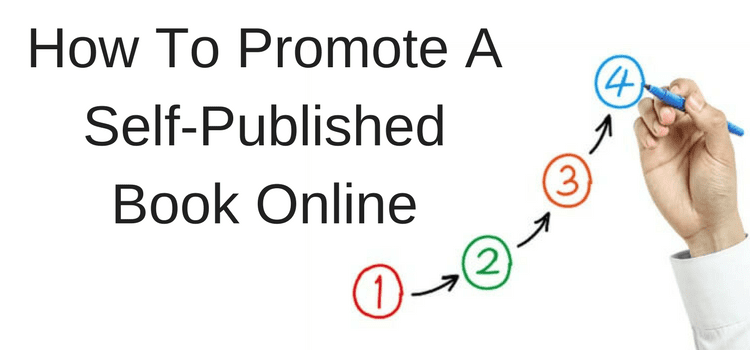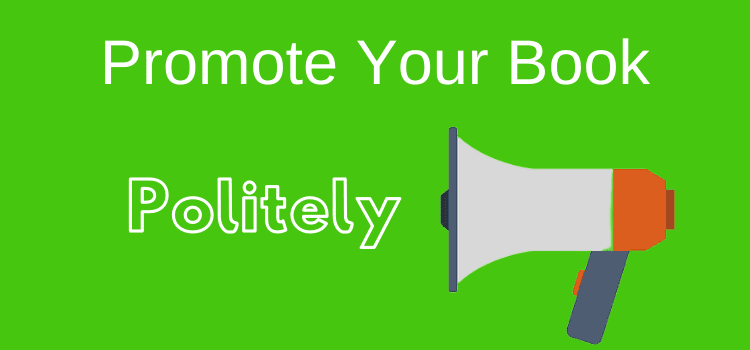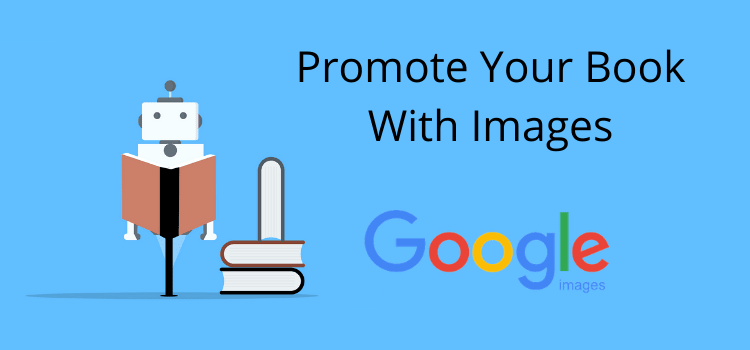
If you self-publish, you need a plan to promote a book online. Writing a great book is one thing. But marketing your book and selling it is another.
Amazon, Apple, Kobo, and all the other ebook and book retailers will not promote your books. While they may run promotions from time to time, there is little likelihood that they will feature your book.
Retailer promotions are usually for top-selling titles or, more often, for a large publisher that has paid for book promotion.
Unless you have money to burn, hiring a marketing company to promote your books will be out of the question.
How to promote a book online
If you want to succeed at self-publishing, you are on your own.
What can you do to ensure your books are seen, noticed, clicked, and, hopefully, purchased and read?
Without your books in a bookstore on the high street, your only option is to leverage online book promotion.
However, this doesn’t mean sending out hundreds of posts every day about your books on social media.
It is usually a recipe for disaster.
Going much wider to attract prospective readers outside your social media circle is better.
More importantly, by going wider, you will help readers who have a genuine interest in the subject, topic, or theme of your book find you.
Yes, they need to find you and not for you to find them.
It is the key fundamental of promoting a book online.
There are four primary avenues you should use, and in combination, they will give you the best possibility of getting your titles seen by thousands and thousands of potential book buyers.
1. Your blog

You absolutely must have an efficient, hardworking, and automated blog.
Your blog should be the hub of your book marketing, as it is where you want your potential readers to arrive.
It is where you highlight your book covers and your published author authority, and with each visit, your chances of selling books will increase.
You have links to your books on retailers and add your book trailers.
A website with an author page can serve a similar purpose, but it is not as flexible or informative as a well-designed and written blog.
Where a blog is alive, a website is usually very static and will not attract return visitors.
Only a regularly updated blog can gain return visitors and help you sell books.
The main advantage of a blog is that you can post and re-post all of your articles, posts, and pages to your social media networks.
With a blog, you can write about your upcoming book or on themes and subjects related to your target audience.
You can even accept guest posts to help you add more content.
Another advantage is that your posts and pages will also be indexed by Google and Bing and assist you in gaining valuable organic traffic.
While there are many ways to set up a blog, the most effective is having a self-hosted WordPress site.
Sure, it will cost a little in hosting fees.
But the flexibility that an automated WordPress blog offers is second to none regarding book promotion and marketing possibilities.
There are so many plugins available for a self-hosted WordPress site (some paid but mostly free) that can either automate or streamline your book promotion.
Some can schedule and automate social media posts, automate image compression, build email lists, or track visitor analytics.
Other plugins add forms to your site, add follow and share buttons, or offer a free ebook download.
If you are serious about your book marketing and promotion, a self-hosted WordPress site is, by a long way, the best possible means.
No free blogging service can provide you with the tools you need to push hard into the world about you as an author and your books.
2. Learn about SEO

Search engine optimization (SEO) is by far the most powerful tool available to you promote a book online and find new book readers and buyers.
Even if you have a large social media following, it pales when you consider that well-researched SEO has the potential to attract every single user in the world who is on the Internet.
Good SEO will get your blog posts and pages indexed by Google and Bing.
With a little more work, perhaps it will get you into the top ten rankings for specific keywords. By doing this, traffic to your blog will increase enormously.
Applying good SEO practices has increased my blog’s average daily page views by over a hundred-fold compared to a few years ago. Yes, SEO really does work.
SEO also applies to your ebook, book, and book retailers, but it is often called metadata.
When you publish your book, your title, book description, categories, and keywords all become metadata that can attract readers who search for a new book to read.
Metadata works very much like SEO keywords.
Amazon search works on metadata like Google and Bing search use SEO.
It’s all about finding search keywords and search phrases that people are likely to use when looking to buy something online, and in this case, a new book to read.
Understanding and applying good SEO practices to your book metadata will help increase the chances of a new book buyer finding your book on Amazon or any other online book retailer.
If content is king, SEO is definitely the queen of online success.
3. Social media

Yes, leverage social media platforms, but do it the right way.
Social media is an essential element in book promotion. However, you will likely have only a few hundred or even a few thousand connections.
Trying to hard-sell your books to this small group will not achieve a great deal of success.
Social media is only effective when you concentrate on expanding your market reach exponentially.
The marketing goal of social media is to gain shares. When a user shares your content, your reach expands. When one thousand users share your content, your reach skyrockets.
Back to your blog here.
You can have follow and social share buttons on every post and page of your blog, as they are your tickets to expanding your reach.
Even if you have only 100 Facebook friends and 200 Twitter followers, you can leverage social media to your advantage from your blog with share buttons.
Along with good SEO, your reach becomes unlimited.
I’ll give you an example of how effective social media can be. One of my posts was shared on Flipboard and resulted in over 20,000 page views in one week.
That is the real power of social media.
The efficient use of social media to promote a book online is not about your follower numbers. It is about its sharing potential.
4. Promotion and advertising

You will need to pay for some book promotion and advertising.
You can avoid it for as long as you like. But paying for promotion and advertising is a proven means of making sales.
If it weren’t, Facebook and Google would not be making billions of dollars in advertising each year.
There are many choices to promote your books.
You can use Amazon PPC Ads, Google Ads, Facebook or Twitter Ads, as well as dedicated book promotion websites.
The only proviso is that no amount of money spent on advertising will sell a poor product.
Before spending a cent, make sure your book is up to standard before paying for advertising.
Money spent on a great cover, a thorough edit, and perfect ebook formatting would be a more prudent investment than splashing out on Facebook advertising when your book is not up to a marketable standard for readers.
You should also have enough book reviews to encourage and satisfy potential buyers.
For pre-orders, you can add editorial reviews in your book description.
When you are sure you have a good product, spending judiciously on a small range of advertising and promotion sites can increase your book sales and your ranking on retailer bestselling lists.
When you invest in paid advertising and book promotion, always set yourself a strict budget and schedule. Then check your results to see which means is the most effective for you.
Summary
The four topics I have outlined above all revolve around having a fully functioning and, if possible, automated blog.
It is the essential element, as it is the hub of all your book promotion and marketing.
Yes, you can use free blogging services, and you will have a little success, perhaps.
But a self-hosted blog that uses good SEO and leverages social media effectively is always a better choice.
After all, will Amazon help you promote your book online?
No. If you want people to read your book, you have to help yourself by promoting it.
Related Reading: 5 Essential Book Promotion Tools For Every Author




I found this very interesting and helpful.
I am presently having my novel edited. Then it will go to the typesetter and then to print.
That’s when I will need your services.
Please keep me informed.
Once you get to real PR, Viv, you are usually talking very expensive. I’m not sure many authors can afford it. As for keeping fees low for authors, I know how it goes.
This is a great post and will help with my sales, but what about PA’s and PR’s? We have many authors to promote, and this could be costly, especially since our authors pay us a fee already. Our company, Owl and Pussycat Book Promotions, know authors don’t have much money, especially starting out, so we keep our fees low.
Is there any advice you have for us?
Good information. Thanks! There is so much to do, so much to learn, and a lot of hard work ahead.